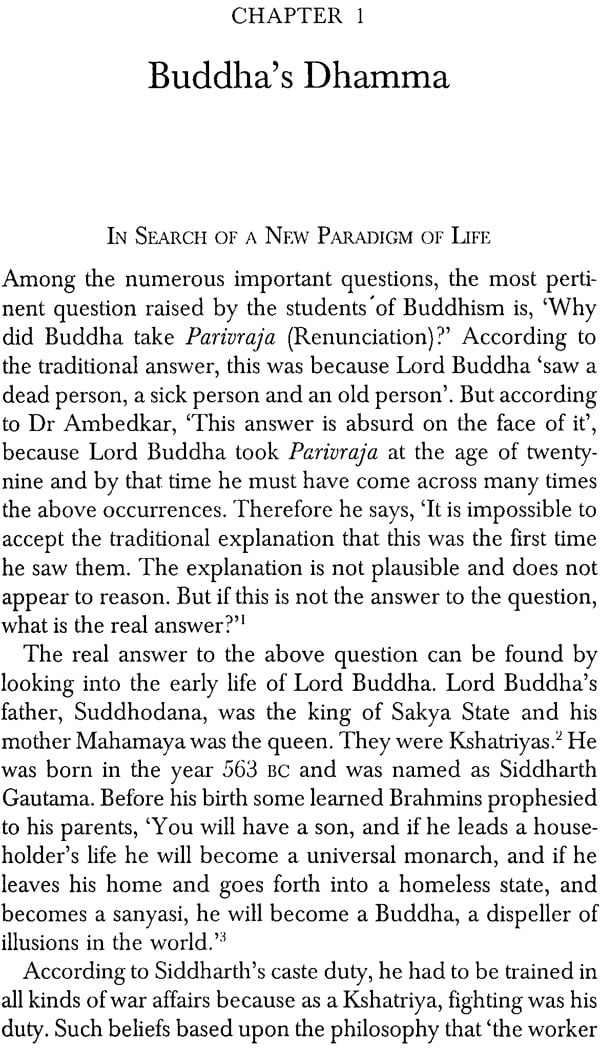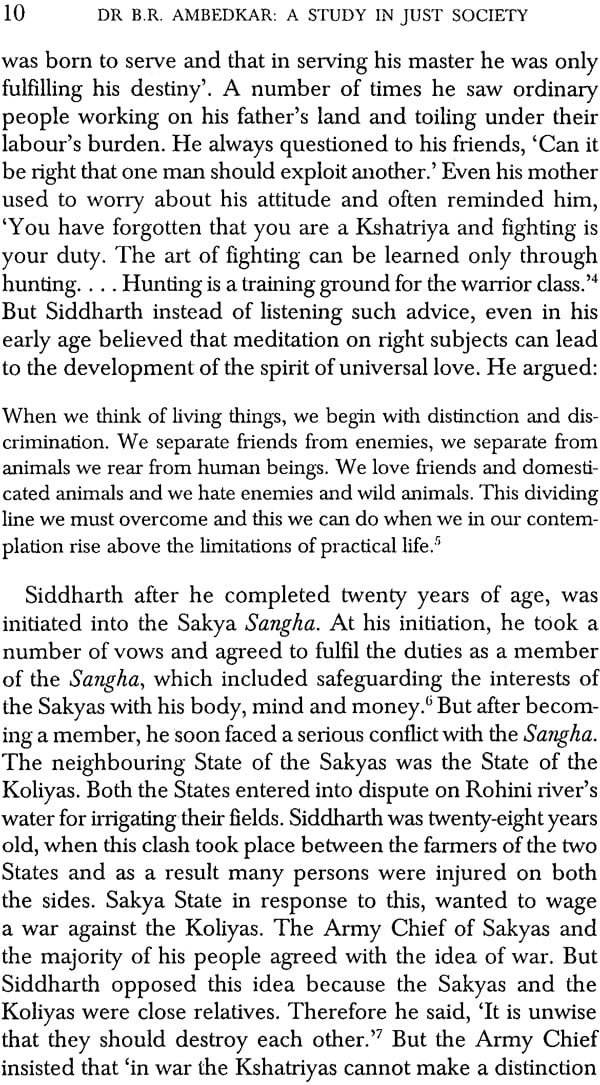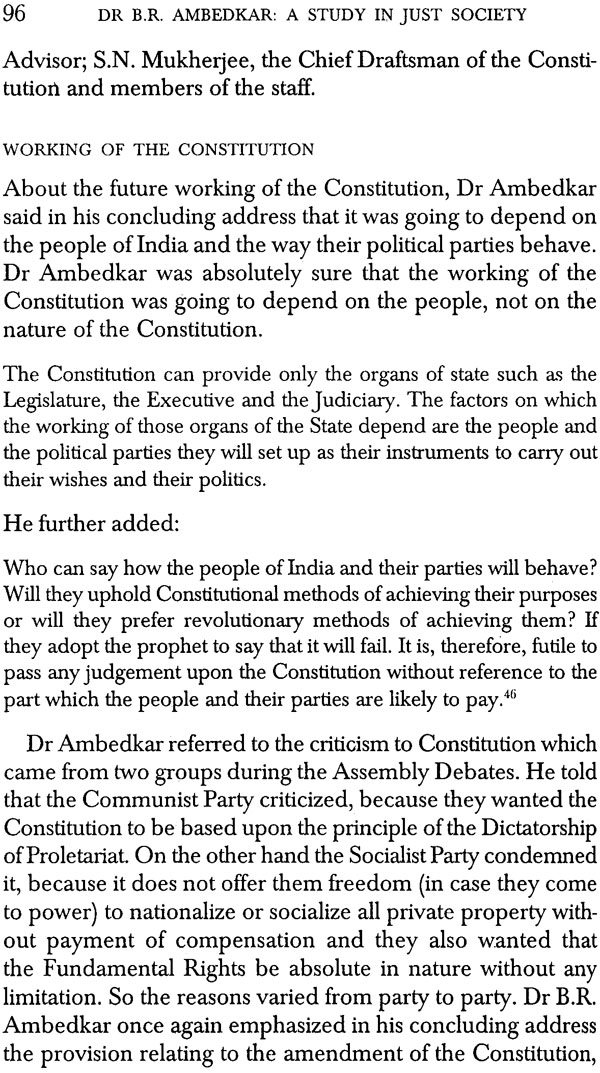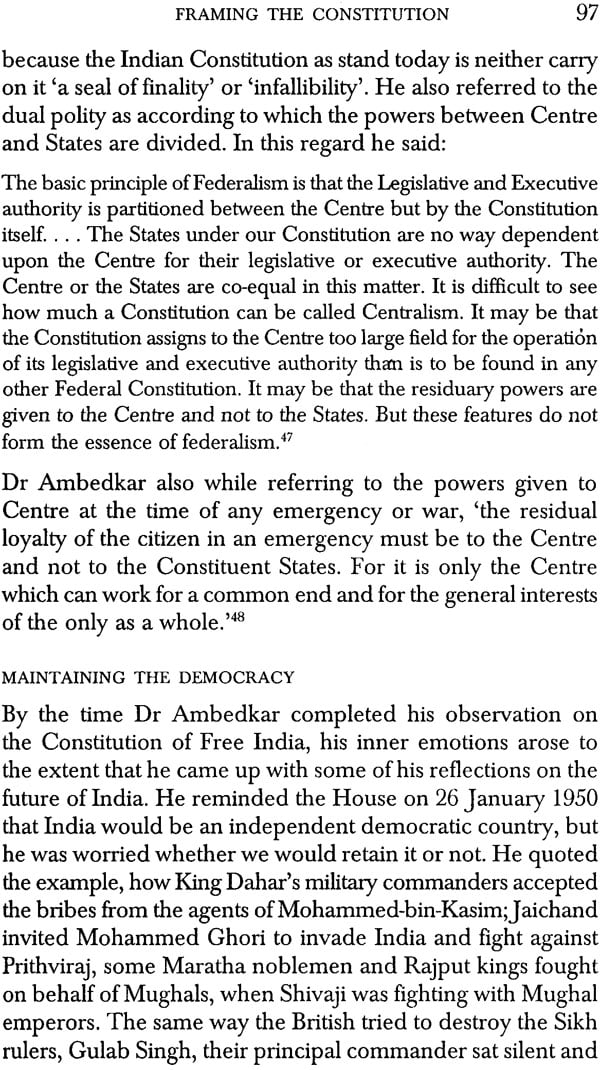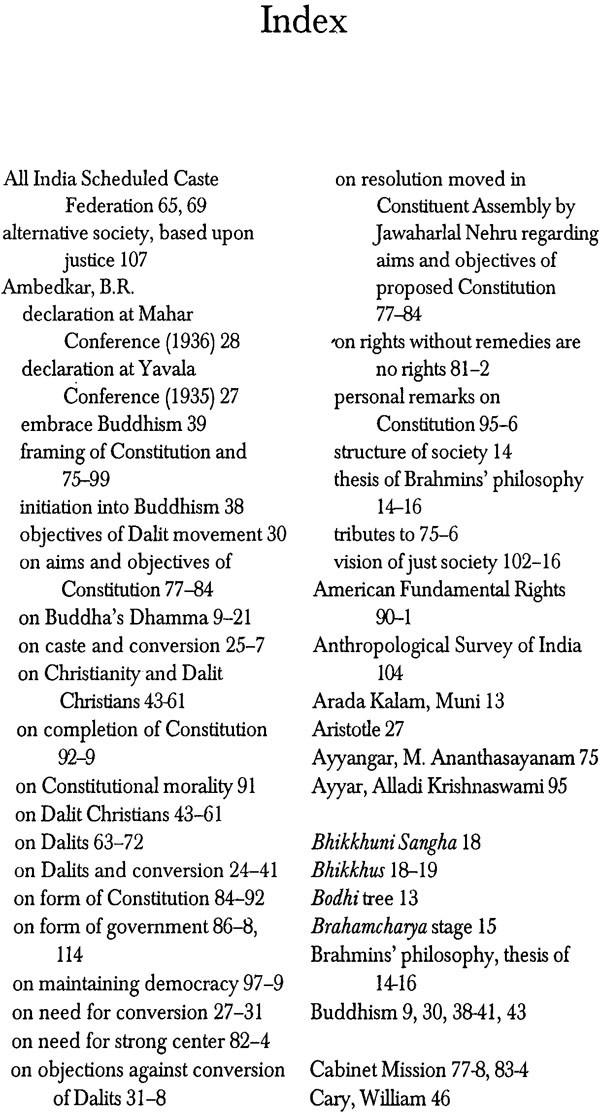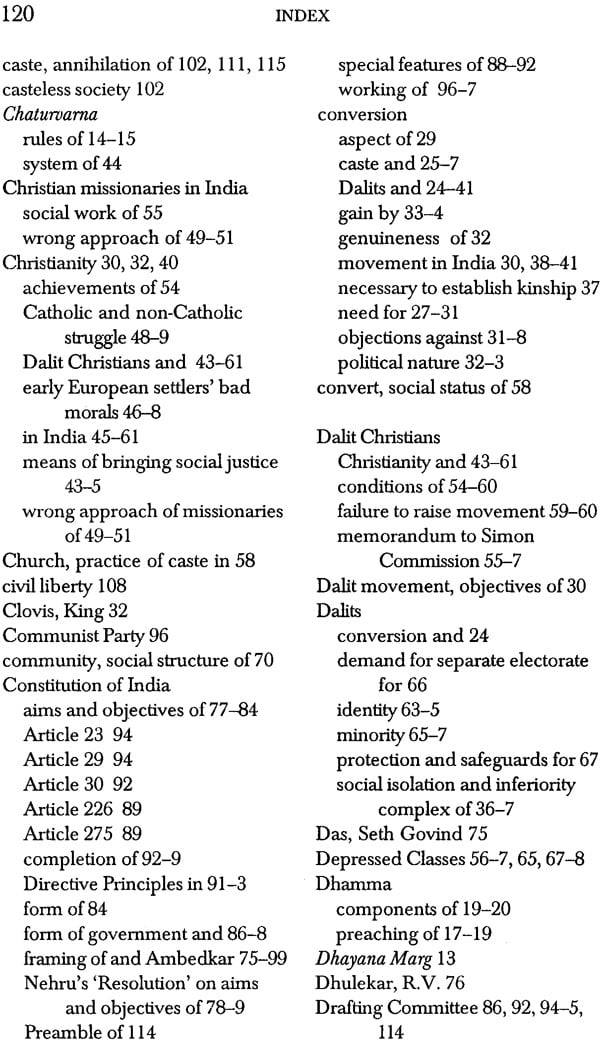
Dr. B. R. Ambedkar (A Study in Just Society)
Book Specification
| Item Code: | NAM358 |
| Author: | James Massey |
| Publisher: | Manohar Publishers and Distributors |
| Language: | English |
| Edition: | 2003 |
| ISBN: | 9788173045240 |
| Pages: | 124 |
| Cover: | Paperback |
| Other Details | 8.5 inch x 5.5 inch |
| Weight | 190 gm |
Book Description
The theme 'just society' is the main subject which runs throughout this work, as envisaged by Babasaheb Dr B.R Ambedkar. The entire discussion is based mainly upon his original writings. Besides the main theme, this work also carries the detailed discussions on the related themes, which include: 'Buddha's Dhamma', 'Dalits and the Conversion', 'Christianity and the Dalit Christians', 'Dalits: A Minority' and 'Framing the Constitution'. The author intentionally has allowed Dr. Ambedkar to speak for himself, therefore the readers will find many quotations throughout this work. The themes discussed are most relevant today, therefore it is being offered to the readers with this belief that Dr B.R. Ambedkar's thoughts can became the basis of dealing with the current problems related to the Dalits, tribals, women, minorities and other weaker sections of the Indian society.
The Rev. Dr habil. James Massey is currently the General- Secretary/Director of Dalit Solidarity Peoples in India, which is a national multi-faith movement. He is also the Hon. Director of the Centre for Dalit Studies, New Delhi. He also worked actively for inter-faith dialogue in the Indian context with special interest in Sikh religion. For his work in Sikh religion he was awarded Doctor of Philosophy by Johann Wolfgang Goethe-University, Frankfurt, Germany, and again Post- Doctoral Academic Degree (Habilitation) in the field of Religious Studies by the same university.
Dr. Massey is the translator of the Punjabi Bible and has authored and edited more than 20 books, which includes: Masihiata: Ika Paricaya (Punjabi, 1976); Doctrine of the Ultimate Reality in Sikh Religion (1990); Towards Dalit Hermeneutics: Re-Reading the Text, the History and the Literature (1994); Dalits in India: Religion as a Source of Bondage or Liberation with Special Reference to Christians (1995); Roots of Dalit History, Christianity, Theology and Spirituality (1996); The Movement of the Spirit (1996); Down Trodden: The Struggle of India's Dalits for Identity, Solidarity and Liberation, (1997); Current Challenges and Church Response (1998) and Dalits: Issues and Concerns (1998). His recent publications include Minorities in Democracy: The Indian Experience (1999), and Minorities and Religious Freedom in a Democracy (2003). He has also published a number of papers in academic books and journals.
This work is an attempt to study an alternative social order envisaged by Bharat Ratna Babasaheb Dr B.R. Ambedkar. This theme, perhaps most important, runs throughout most of his writings is actually an alternative paradigm of a social order to an existing social order based upon the caste system. His alternative is an 'ideal society' or a 'casteless society', based upon the principle of justice. I have named this society as 'just society'. In the concluding chapter Dr Ambedkar's 'envisaged' just society is discussed in detail.
Closely related to the 'just society' are the other five most important themes: 'Buddha's Dhamma', 'Dalits and the Conversion', 'Christianity and Dalit Christians', 'Dalits: A Minority' and 'Framing the Constitution'. In Chapters One and Two the first two themes are discussed, which deals with the doctrinal or conceptional basis of Dr Ambedkar's 'just society'. The discussions of Chapters Three and Four deal with the victims of the existing caste based society, which specially include the various communities of the Dalits.
According to Dr Ambedkar, 'Buddha's Dhamma' was the new paradigm of life, which offered full liberation to human beings in this world. In Chapter Two on 'Dalits and 'the Con- version', according to Dr Ambedkar the conversion possibly was the only way which offered to the Dalits a real 'social equality'. Similarly the discussion of Chapter Three on 'Christianity and Dalit Christians' shows his belief that Christianity can be a possible means of bringing social justice to the Dalits, but Dr Ambedkar also added that it failed because of the approach of the Christian missionaries while preaching it, which was just the opposite of the approach of Jesus and his disciples. The Chapter Four on 'Dalits: A Minority' deals with the whole issue of 'Dalits Identity'. Though in Hindu-fold, yet according to Dr Ambedkar they have their own 'Independent Identity'. The discussion of Chapter Four shows that the minorities in general and the Dalits particularly for Dr Ambedkar were not only an issue, in fact the people belonging to various minorities and the protection of their rights was one of the major concerns of his life.
Chapter Five on 'Framing the Constitution', makes a very important point clear that the exercise involved in the process of framing the Constitution was not just to provide rules and regulations to govern a country, but it was actually a process of creating a mechanism to help in establishing a democratic social order or a society based upon the principle of justice. The preamble of Indian Constitution is very clear on this point. It is because, according to Dr Ambedkar 'a democracy was not a form of government, it was essentially a form of society'. Therefore the Constitution adopted on 26 January 1950, was to be the main instrument for establishing a 'just society'.
This work basically contains a discussion on the theme of 'just society' based upon the original writings of Dr B.R. Ambedkar. I have intentionally allowed Dr Ambedkar to speak for himself, therefore the readers will find many quotations throughout this work. The theme is most relevant today, there-fore it is being offered to the readers with this belief that Babasaheb Dr Ambedkar's thoughts can become the basis of dealing with the current problems related to the Dalits, tribals, women, minorities and other weaker sections of the Indian society.
| Introduction | 7 | |
| 1 | Buddha's Dhamma | 9 |
| 2 | Dalits and the Conversion | 24 |
| 3 | Christianity and Dalit Christians | 43 |
| 4 | Dalits: A Minority | 63 |
| 5 | Framing the Constitution | 75 |
| 6 | Vision of a 'Just Society' | 102 |
| Index | 119 |
